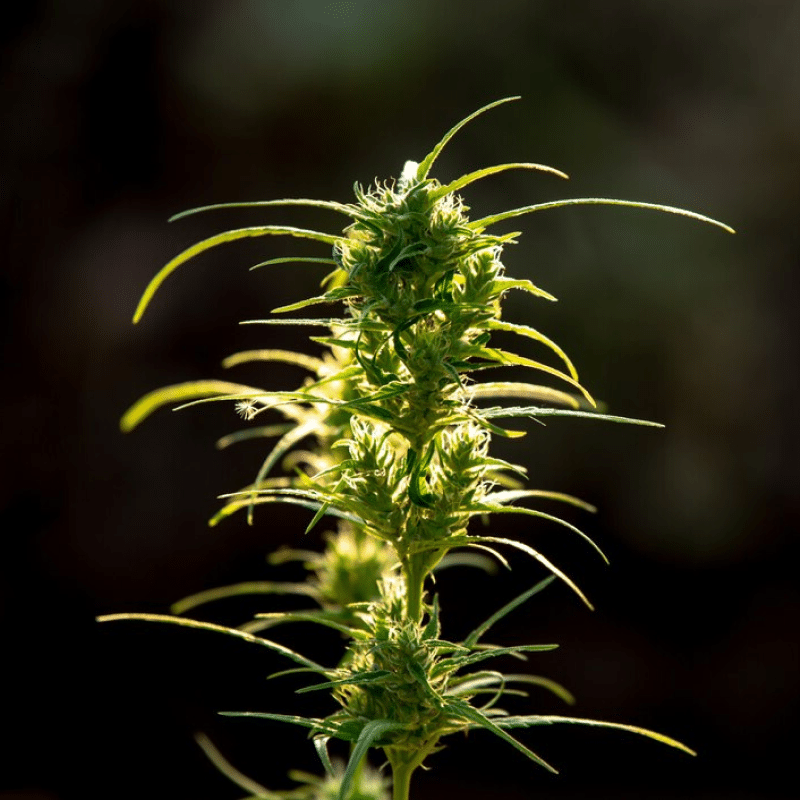Lessons from DreamFields: How to NOT Get Sued for THC Potency Issues
This article explores the critical importance of accurately labeling THC potency in cannabis products, highlighting lessons learned from the DreamFields lawsuit. It emphasizes the need for quality control, transparency with consumers, and continuous education to prevent legal issues and maintain customer trust in the increasingly scrutinized cannabis industry.

The question of THC potency is ongoing in the cannabis industry. Exactly how potent products should be is up for debate — but what’s not up for debate is the necessity to accurately label product potency. What happens when a company decides to exaggerate how strong their products are? Look no further than California-based DreamFields, and their recent lawsuit to know.
Understanding THC Potency Regulations
THC potency is a hot topic in the cannabis industry. Obsession with high-potency products is on the rise as brands try to offset price compression by making products stronger and more expensive. This is not necessarily good for businesses or consumers, as higher potency products are directly linked to increased risk of negative side effects — but it persists nonetheless.
The challenge with state-by-state legalization of cannabis is that each state is a market unto itself, with different governing rules and regulations. Some states have THC potency limits and some do not. The allowed potency of a given market is governed by the state’s cannabis regulatory body. In California, there is no potency limit on flower products, but edibles and concentrates have THC caps.
But regardless of potency caps, brands are expected (and legally obligated) to properly advertise their product’s potency. This approach is crucial to let consumers know what kind of experience to expect, and to properly set a price point — the higher the potency, the more customers are willing to pay.
The DreamFields THC Potency Lawsuit
This brings us to the DreamFields THC potency lawsuit, The class action lawsuit was filed in October 2022 by two plaintiffs who alleged that Jeeter, a subsidiary of DreamFields, was purposefully overstating the amount of THC in their prerolls in order to charge more.
The case came about after an article posted by WeedWeek revealed that independent testing labs found significantly lower levels of THC in Jeeter’s prerolls. The suit specifically named two types of prerolls with egregiously incorrect THC labels.
- The Baby Jeeter Fire OG Diamond Infused pre-roll, which was advertised to have 46% THC and only tested at 23 – 27% THC (a 70 – 100% inflation rate)
- The Baby Jeeter Churros Diamond Infused 5-pack pre-roll which was advertised to have 37% THC and only tested at 26 – 29% (a 28 – 42% inflation rate)
The DreamFields THC potency lawsuit alleges that the company knowingly overcharged consumers for products that were weaker than advertised (though to be sure, 29% THC is hardly a weak product). The defense sought damages, including restitution and attorney fees as well as an injunction against Jeeter and DreamFields.
The company countered that all allegations were false and moved to dismiss the case on the basis that they could not be held liable for the THC percentages, as they came from a third-party testing source. In June 2023, the court rejected this argument on the basis that the company has an “independent duty to ensure that the statements on their products, regardless of origin, are accurate and not misleading” and upheld the defendant’s suit, meaning the lawsuit can move forward.
How to NOT Get Sued for THC Potency Issues
No brand wants to be sued by disgruntled customers — and the easiest way to avoid this is to accurately represent your THC potency in products. How can you avoid falling into a situation like the one Jeeter and DreamField found themselves in?
1. Quality Control Measures
You can’t be sued for mislabeled packages if they’re properly labeled. Sounds simple right? With proper quality control measures, it is. But setting these measures up and upholding them is an ongoing challenge, not a destination.
Your company should follow best practices for packaging, with clear labels that are easy to find and read, as well as accessible COAs so customers can review the lab testing for themselves. Regular internal testing and third-party verification are key pieces in upholding quality control measures. Your THC labels must be accurate, although most states have a margin of error for this (in California, the margin of error is 10%.)
DreamFields tried to dismiss the lawsuit by claiming they couldn’t be held liable for the THC potency as they were tested by a third party, an argument the court rejected. Even if your company uses a third-party company to test products, you must still hold that company to the same rigorous quality control standards.
2. Transparency with Consumers
The biggest problem with mislabeled products is how quickly they erode customer trust. If your company is seen as a snake oil salesman, customer loyalty dissolves instantly.
High THC products are an industry-wide obsession — and it’s driven by consumer buying patterns. But smoking a 47% THC pre-roll isn’t good for anyone; it’s an overload on your endocannabinoid system. Accurately labeling your products is key, but consumer education should also be a high priority for cannabis brands.
The decades-long prohibition on cannabis means most consumers don’t fully understand the plant, its effects, or how to best use it. It is the responsibility of cannabis brands to provide that education so consumers can understand not just what to expect from THC, but how to optimize their cannabis use for their health and wellness goals. Even recreational consumers list sleep, pain, and anxiety as top reasons for consuming — three health and wellness concerns.
Consumers see brands as plant experts, for better or worse, and brands need to take that responsibility seriously, not capitalize on it to unethically increase profit margins. Consumer education goes a long way toward building trust, as does answering consumer questions and being open to product feedback.
3. Continuous Education and Training
The case is not the first time the California market has been rocked by allegations of inflating THC potency; t’s been an ongoing issue for over a year now. Working with a credible testing source is a key piece of the puzzle for a brand. If a lab is found to be inflating THC potency, it can blow back onto the brand they work with, hurting their reputation and eroding customer trust.
Ignorance is no excuse either. As the DreamFields case highlights, brands are responsible for the testing labs they work with, making it incredibly important to long-term success to partner with reputable labs. Both internal staff and lab employees must understand the current regulations and industry standards for cannabinoid testing. Regular audits and third-party tests can help ensure consistency and accuracy with the lab results.
4. Risk Management
At the end of the day, potency misrepresentation is not just a consumer trust issue; it’s a legal liability and risk management issue. Potency and label inaccuracies are an exposure issue for plant-touching brands that can be mitigated — or can escalate if ignored.
In addition to following packaging best practices and conducting regular lab audits, brands should also cover their legal bases with the proper cannabis insurance policies. Comprehensive liability insurance is a backup plan, or a failsafe in the instance that something goes wrong despite following best practices.
Cannabis companies should also be actively engaged in trying to change the conversation around THC potency by participating in industry and regulatory discussions about THC potency standards and consumer education.
THC potency is an industry-wide issue. Cannabis companies have a responsibility to accurately label packages and consumers have proven they’re more than willing to hold canna-businesses accountable when they don’t. The DreamFields THC potency lawsuit is still ongoing, but we’ll keep our eyes on this case, because how it plays out will have a ripple effect throughout the California cannabis market, and perhaps through all legal states.
Protecting your cannabis company can seem confusing; however, we’re a full-service insurance brokerage working with carriers worldwide to offer you the best coverage possible. We’re here to help! Please reach out to us today by emailing info@alpharoot.com or calling 646-854-1093 for a customized letter of commitment or learning more about your cannabis insurance options.




